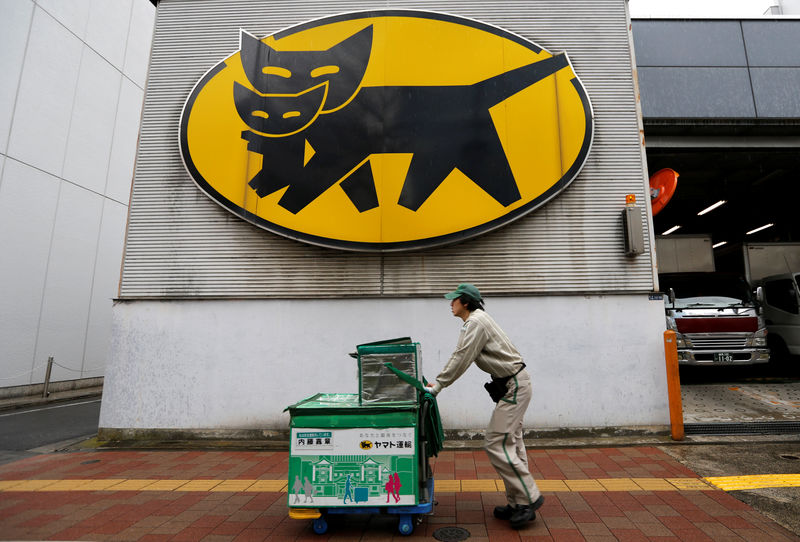By Tetsushi Kajimoto
TOKYO (Reuters) - Workers at Japan's top companies are likely to get a base pay hike of around just 0.3 percent, the smallest raise in four years - a setback for Prime Minister Shinzo Abe's campaign to spur the long-sluggish economy.
The annual "shunto" spring wage increases to be announced on Wednesday, which take effect in the coming fiscal year from April, are seen as a barometer of Japanese corporate confidence.
Despite sitting on piles of cash, companies are reluctant to raise wages as they're anxious about the economic outlook, currency swings and the chance U.S. President Donald Trump's trade policies will hurt Japan's exports.
A Reuters poll in January showed that nearly two-thirds of companies do not plan to raise their workers' wages this year.
Even where hikes are certain, the amounts can be tiny.
Toyota Motor Corp's (T:7203) base pay hike, traditionally a benchmark other companies use to gauge their increases, will likely come to just 1,300 yen, or about $11, a month. That's less than half the union's demand and well below the 4,000 yen (28.70 pounds) hike given in 2015.
For a mid-level technician at Toyota earning 360,000 yen a month, that's a 0.36 percent increase.
Total wage growth will be higher than that: Workers will see roughly 2 percent more in their paychecks because their salary goes up automatically every year under Japan's seniority-based employment system.
Still, such an increase is below last year's 2.14 percent, and 2015's 2.38 percent, a 17-year high.
Major electric machinery makers such as Hitachi (T:6501), Mitsubishi Electric (T:6503) and Panasonic Corp (T:6752) are expected to reduce their wage hikes for a second year, to 1,000 yen from 1,500 yen.
LIMP SPENDING
From the early 2000s, base pay raises were virtually frozen for over a decade until Abe swept to power in late 2012 with a pledge to reboot the moribund economy. He urged companies to lift wages and they complied, to a degree.
Abe wants healthy wage hikes to drive a virtuous growth cycle in which consumer spending and business investment rise, in turn lifting profits and wages. The central bank also wants to see higher wages lift prices and enable Japan to break out of its deflationary rut.
But the latest meagre gains bode poorly for that scenario.
"Wage growth is likely to slow this year, which together with gradual rises in prices will weigh on real incomes," said Yoshiki Shinke, chief economist at Dai-ichi Life Research Institute. "That will hamper self-sustaining economic recovery led by domestic demand."
This year, unions kept their demands unchanged from last year. Still, many companies are likely to offer less than half of what unions want.
"I have no expectation for 'shunto' because my labour union is not so strong and they don't really fight for wage increases," said a 26-year-old worker at an energy company who gave only his first name, Toshiki.
"Even if I do get a pay raise, I wouldn't spend it," he said.
